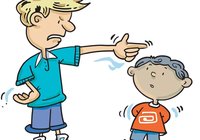| Phrasal verb | Main meaning |
|---|---|
go on [ɡəʊ ɒn] | to continue happening or doing something |
Other meanings
- to happen
- to start operating (machine/light/etc.)
- to talk too much or too long
- used to encourage someone (“Go on!” = “Come on!”)
Example Sentences Using the Phrasal Verb "go on"
- Please go on with your story.
- What’s going on here?
- The lights went on suddenly.
- He just went on and on about his problems.
- Oh, go on! Try it!
Features of Using "go on"
Very frequent phrasal verb in spoken English.
Strongly idiomatic in some uses (“go on and on”).
“Go on” + “with” = continue doing something.
Often appears in continuous/progressive forms (“what’s going on?”).
Other phrasal verbs with the verb go
go out
to leave a place, especially your home
go back
return to a place or a previous state
go away
to leave a place or person
go across
to move from one side to the other
go forward
to move ahead or proceed with something
go by
to pass (in time or space)
go through
to experience or endure something difficult
go into
to enter or move inside (a place)
go along with
to agree with someone’s opinion, idea, or decision
go for
to try to get something
🔗 Learn more about the irregular verb go, including its forms and usage.










